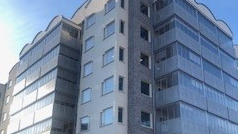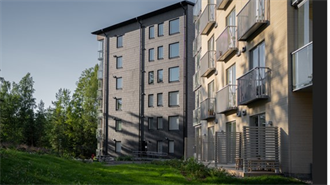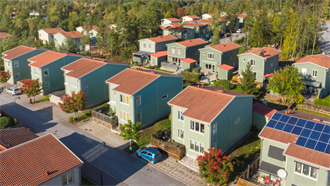Prospects for real estate are bright but continental Europe has to take a leaf out of the UK’s book in order to attract more investment from Asia, experts agreed at the PropertyEU Global Capital Flows & Investment Roundtable, which was held at Savills’ headquarters in London on Monday.
‘I am incredibly positive on mainland Europe this year and the next,’ said Mat Oakley, head of UK & European research, Savills. ‘In 2017 investment volumes were up 10% and more countries saw an increase in investment activity than a decrease. That good story is set to continue in 2018 and beyond.’
Property essentially follows economic growth, and GDP growth is above average in most European countries, with business confidence on the up and consumer confidence close to record levels. ‘The EU ticks a lot of investors’ boxes in terms of safety and security and now, outside of Italy, there is less political risk than before’, he said.
Asian investors see Europe as a safe destination, said Rasheed Hassan, head of cross-border investment, Savills: ‘Currency is the one relatively big risk they see, but nothing is as big as the push factors that are driving the money out.’
But European real estate has a challenge to face, Oakley said: ‘It is all about engaging with Chinese money. Mainland Europe has to find ways of being attractive to the huge pool of capital coming from Asia. China is focused on the UK and is still relatively inactive in mainland Europe. Outside of the UK, US capital remains dominant.’
Looking at sources of cross-border capital in Europe in 2017, the US was by far the first with over €30 bn and China a distant second. ‘Yet London remains the number 1 destination for foreign investment, primarily due to its attraction to Chinese and APAC (Asia and Pacific ed.) investors’, he said.
Chinese private capital
Chinese money now does not come from state-owned enterprises, said Will Rowson, partner, Hodes Weill & Associates: ‘There is a lot more private Chinese capital now looking at the UK market, even at housing in London, because the UK market still makes sense to them.’
China of course is not the only player, as other Asian investors are targeting mainland Europe. ‘We focus on bringing money east to west, and the biggest markets that are emerging are South Korea and Singapore,’ said Hassan. ‘South Korean capital is flexible, they will look at all sorts of markets but they want 6-6.5% cash yield. Singapore is looking at Europe very hard, chasing alternative sectors with specialist teams and also chasing those elusive 6.5% returns.’
Japan, which was very active in the early 1990’s, is also waking up from a long slumber, but needs to act fast, panellists warned. ‘South Korea and Singapore move fast, which you need to do to get the deals done in today’s competitive market,’ said Simon Mallinson, executive managing director, EMEA & APAC at Real Capital Analytics (RCA). ‘Japanese investors may struggle because they are slower in reaching a decision.’
New World
Fresh capital is also coming from the New World: ‘We will see an increase in Latin American investors, including family offices, looking at European real estate,’ said Jos Short, executive chairman, Internos Global Investors. LatAm institutions have matured and are now beginning to look outside their continent.
Foreign capital has mainly cities on their radar screens, but they are looking beyond London, Paris, Frankfurt or Berlin, ‘EU cities are becoming increasingly attractive to cross-border investors,’ Oakley said. Last year, according to RCA data, there was a staggering 2,065% increase in cross-border investment in Helsinki and a 1,257% increase in Madrid. ‘This was partly due to some large deals that are unlikely to be repeated, but it does show investors are willing to expand their horizons,’ he said.


































